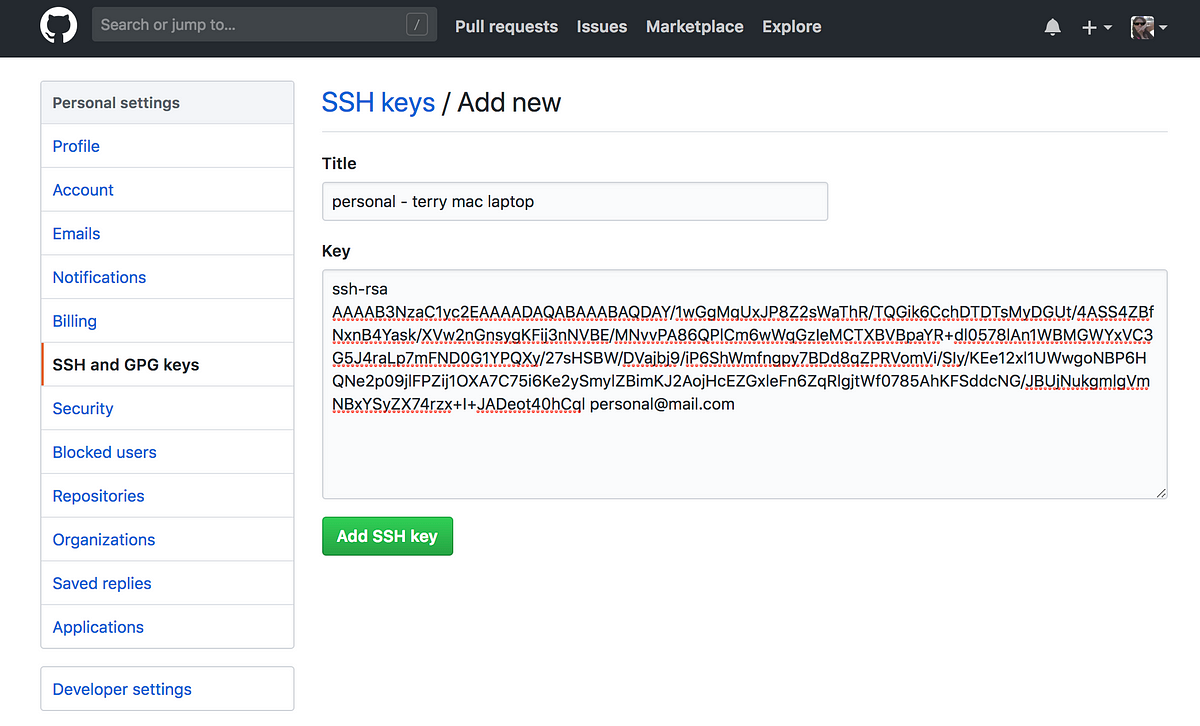

Head back over to the SSH config file at ~/. Register your keys to the respective GitHub accounts.ģ. We're not adding the keys to the ssh-agent.Ģ. This step will generate both the private and public keys, user-1 + user-1.pub, user-2 + user-2.pub respectively. This filename will be used for your SSH private and public keys so remember to make it unique, eg. Run ssh-keygen -t rsa -b 4096 -C be prompted: "Enter a file in which to save the key" and the suggested default filename would be id_rsa. If you have already setup your Mac to SSH with one of them, or check if you have one, continue on with the following for the second account.

To do that that you'll need to create SSH key pairs for each account. Paste the text below, substituting in the email address for your account on GitHub.Assuming you've got 2 github accounts, for work and play, lets get your Mac to "register" them.

Insert your hardware security key into your computer. For more information, see " Error: Unknown key type."
#Ssh keys github mac os install
If you are using macOS or Linux, you may need to update your SSH client or install a new SSH client prior to generating a new SSH key. Generating a new SSH key for a hardware security key That’s it this keypair is ready to be deployed to SSH servers, GitHub or any other service that can use them. For more information, see " Adding a new SSH key to your GitHub account." I’m hoping to reinstall my MacBook with a fresh macOS Catalina sometime soon, and part of preparations is testing my install methods (hello, brew) and configuration files migration. $ ssh-add ~/.ssh/id_ed25519Īdd the SSH key to your account on GitHub. If you created your key with a different name, or if you are adding an existing key that has a different name, replace id_ed25519 in the command with the name of your private key file. Host *Īdd your SSH private key to the ssh-agent. If your SSH key file has a different name or path than the example code, modify the filename or path to match your current setup. Open your ~/.ssh/config file, then modify the file to contain the following lines. If prompted, confirm your GitHub password. For example, if youre using a personal Mac, you might call this key 'Personal MacBook Air'. This lists all keys that the SSH agent knows about. This will get us into our user SSH folder. Assuming your SSH keys are RSA-based, I have a quick solution: cd /.ssh.
#Ssh keys github mac os password
In the 'Title' field, add a descriptive label for the new key. The above command prompted for a password (assuming you use GitHub), which is should not do if SSH keys are set up properly. If the file doesn't exist, create the file. In the 'Access' section of the sidebar, click SSH and GPG keys. > The file /Users/ you/.ssh/config does not exist. You can navigate to it by running cd /. If you're using macOS Sierra 10.12.2 or later, you will need to modify your ~/.ssh/config file to automatically load keys into the ssh-agent and store passphrases in your keychain.įirst, check to see if your ~/.ssh/config file exists in the default location. The config file is where you draw relations of your SSH keys to each GitHub (or Bitbucket) account, and all your SSH keys generated are saved into. Using either method, make sure keys are in the default location /.ssh/ Make sure the permission for the key files are correct.
#Ssh keys github mac os windows
Check for pre-existing SSH keys on your computer. If no SSH keys yet, generate a pair of SSH RSA keys Method 1: generate keys on MacOS Terminal or Windows Git Bash. If Github is aware of the key your computer is using, you won’t have to enter your Github username/password every time you connect. For example, you may need to use root access by running sudo -s -H before starting the ssh-agent, or you may need to use exec ssh-agent bash or exec ssh-agent zsh to run the ssh-agent. An SSH key basically lets your computer uniquely identify itself when it connects to servers. $ eval "$(ssh-agent -s)"ĭepending on your environment, you may need to use a different command.


 0 kommentar(er)
0 kommentar(er)
